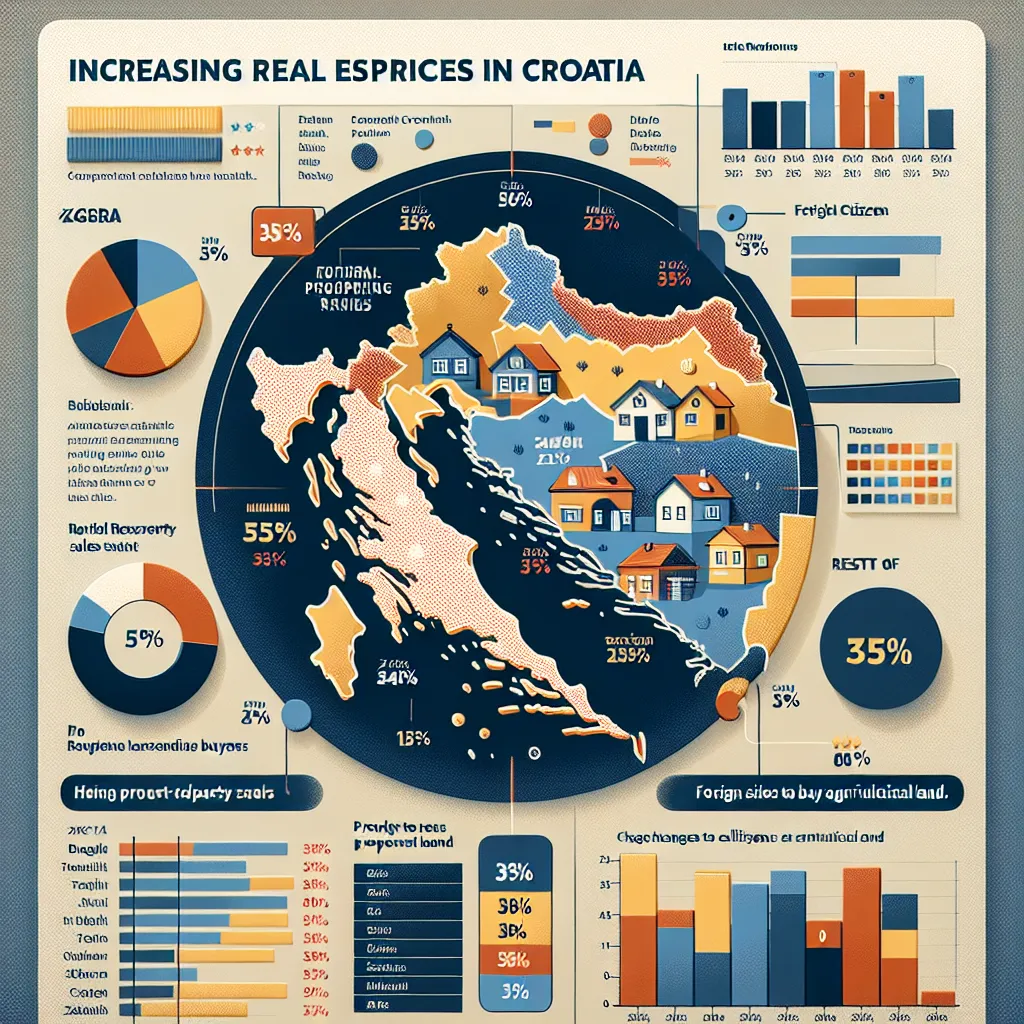High-income foreigners buy the most real estate in the Adriatic region.

The prices of real estate in Croatia continue to rise, and the demand for foreigners to buy real estate is also increasing. This foreign demand is often cited as one of the main factors behind high real estate prices.
While Croatians are mainly interested in houses and apartments in Zagreb, wealthy foreigners are expectedly looking for and buying real estate on the coast. About 35 percent of all residential properties sold are in Zagreb, about 50 percent on the coast and about 15 percent in the rest of Croatia, says Boro Vujovic, vice president of the real estate association of the Croatian Chamber of Commerce and Industry and director and founder of Opereta, one of the largest real estate companies' 'in Croatia.
Although their main market is Zagreb, sales on the coast are also growing, with properties in Dubrovnik, Korcula, Split, Trogir, Sibenik, Zadar and Rovinj in demand.
Citizens and legal entities from EU countries can purchase real estate in Croatia under the same conditions as Croatian citizens since the country's accession to the EU in 2013, and as of July 1 this year, they are no longer restricted from buying agricultural land.
Vujovic, citing official national-level data, notes that the number of foreigners among buyers of residential real estate in Croatia has increased from about 5,500 in 2010 to more than 13,000 in 2022 - more than doubling. The share of foreigners rose from about 14 percent to 37 percent of the national average, and on' 'coast and islands this figure is 70-80 percent, says Vujovic. "There was a small disruption during the pandemic, but overall the number of foreigners is continuously increasing," says Vujovic and adds that in and around Zagreb, buyers are still mostly locals, unlike on the coast.
The most expensive and attractive destinations
The most expensive and attractive destinations are Dubrovnik, Split, Opatija and Rovinj. Croatia's entry into the Schengen zone and the Eurozone since the beginning of this year has already affected the interest of foreigners in real estate in the country, especially on the coast.
14 May 2025
14 May 2025


Price statistics
Director Opera shows us statistics on average residential property prices over the past year. In first place, as expected, is the Dubrovnik-Neretva region, followed by Spliško-Dalmatinska, Istarska, Zadar, Sibensko-Kninska, Primorsko-Goranska, and only then Zagreb, in seventh place. "The four most expensive and attractive destinations are Dubrovnik, Split, Opatija and Rovinj. There are also Poreč, Umag, Novigrad, as well as Krk,''
'Hvar, Makarska and some microlocations that have their own audience and are in demand. The whole coast is mainly attractive because of foreign buyers," says Vujovic. As an example of an amazing place that has recently become popular, he names Sibenik, which for a long time was "in the shadow of Zadra", but with the development of its cultural and gastronomic offer has gained "a place on the tourist map that it deserves".Attractive destinations on the coast.
Comment
Popular Posts
Popular Offers

Subscribe to the newsletter from Hatamatata.com!
Subscribe to the newsletter from Hatamatata.com!
I agree to the processing of personal data and confidentiality rules of Hatamatata








